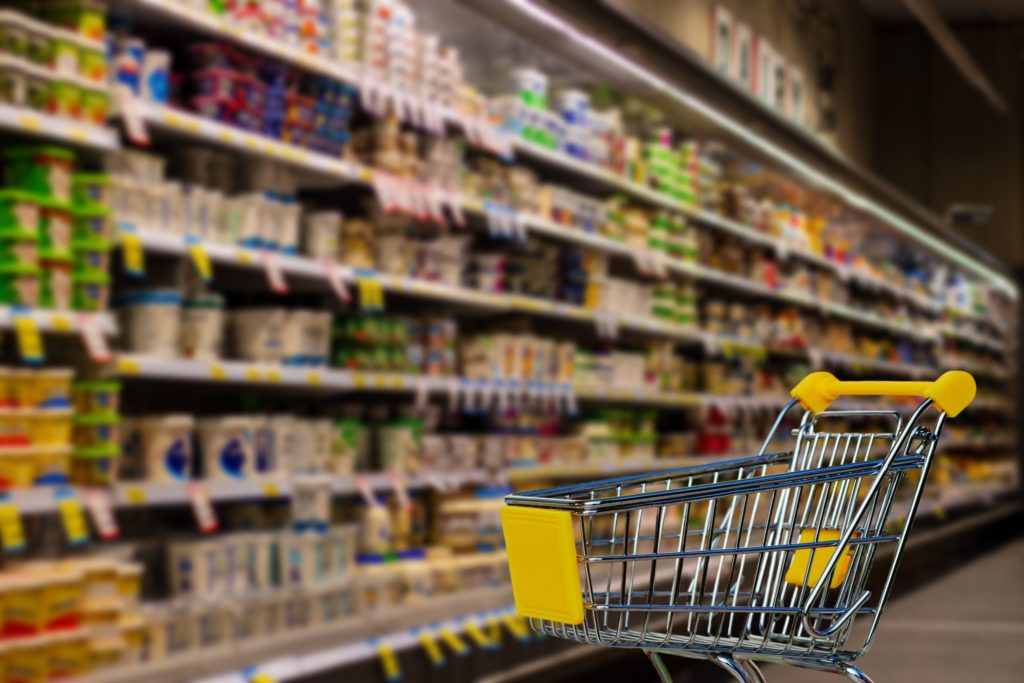After shopping centres sprung up everywhere and things became a little more affordable, it has not been so much of an event, but Croatian people would still go abroad to shop for groceries. The restrictions around the pandemic made it a lot more complicated, impossible at times, but the current situation paired with the lifting of restrictions is helping the revival of shopping trips across the border.
As Glas Slavonije reports, judging by the data on the number of approved requests and the amounts for VAT refunds on purchased goods, Bosanska Posavina is slowly but surely regaining its status as a shopping mecca for many Slavonians, which it had before the emergence of the coronavirus, when they would go daily, especially on weekends, to shop in Orašje, Brčko, Šamac, Brod, Gradiška, and the demand would break records year after year.
Crowds at the Županja-Orašje border crossing are once again becoming a common sight, albeit often due to the numerous trucks that are directed there after the closure of the Gunja – Brčko bridge for freight traffic. At the exit from Orašje, there is often a queue of vehicles in which passengers wait for the customs officials to examine the purchased goods with the attached receipt and to certify the form based on which they will receive a refund. As foreign citizens in Bosnia, their bills are 17 percent cheaper, which is the current VAT rate. Invoices, goods, and the original completed tax refund form are inspected at customs.
According to the data provided to GS by Dženan Kovačević from the Department for Communications and International Cooperation of the Directorate for Indirect Taxation of Bosnia and Herzegovina, foreign citizens (mostly from Serbia, Croatia, and Montenegro) in the first six months of this year bought and exported 31.47 million convertible marks (KM) worth of goods. It amounts to HRK 120.8 million (according to the average CNB exchange rate of HRK 3.84 for one KM). They submitted as many as 106,411 requests for tax refunds in the amount of 4.57 million KM (HRK 17.5 million).
For comparison, in the first six months of last year, foreigners in BiH spent 14.7 million marks (HRK 56.5 million) and submitted 58,116 requests for tax refunds in the total amount of 2.1 million KM (HRK 8 million).
Even more significant numbers were recorded by the border crossings towards Slavonia. In the first half of 2022, the consumption of Slavonians in BiH quadrupled compared to the same period last year. According to the data submitted from the five BiH crossings leading to the Vukovar-Srijem and Brod-Posavina counties, Slavonians spent approximately 11.2 million KM, i.e., HRK 43 million, “across the Sava” from January 1 to June 30 of this year. They submitted 34,734 requests for VAT refunds in the total amount of slightly more than 1.6 million KM, or HRK 6.1 million.
In the same period in 2021, the consumption was four times lower – Slavonians brought in goods worth 2.8 million KM, i.e., HRK 10.8 million, through the mentioned crossings.
The calculation shows that in the first six months of this year, an average of 62,000 KM, or HRK 238,000, was spent across the border per day. In 2021, they spent an average of HRK 146,850 per day, and just two years earlier, in the record 2019, more than HRK 528,000. And last Friday, in the late afternoon, numerous cars with Županja and Vinkovci registration plates were parked in front of a large shopping center at the entrance to Orašje. Few people went out without packing a case of beer in the trunk, which they would pay 19 KM (76 kunas), half of the Croatian pricew. “On Assumption of Mary we have our village celebrations, and it pays off to come here several times because the savings are noticeable even if you only buy beer and soft drinks. For example, a liter and a half of lemon and lime Jana, our favorite summer drink, here we pay only one and a half marks, and in Croatia it’s about HRK 10. All other drinks are also cheaper,” Ivica from Cerna told us. He paid 6.60 KM (HRK 26.5) for a package of six half-liter cans of beer, and in Croatia, he adds, it costs HRK 45.99, with a five percent promotion. He adds that it is best for him to pay by card in Orašje. “Recently, when shopping, only stamps are returned as change, regardless of whether it was paid in kuna or euros, which was not the case before. And they no longer accept kuna in coins anywhere”, he said. Marica from Županja added that prices have also risen in Bosnia and that some items are now even more expensive than in our country, but with the tax refund, especially if you also buy tobacco which is still priced at HRK 50 per half a kilogram, and various beverages, it still makes sense to go.
Some of the prices are as follows: a liter of Zvijezda oil costs 5.80 KM, 500g of Vegeta is 5.25 marks, a kilogram of sugar 2.25 marks, while flour costs 1.65 marks. A large Argeta chicken pate costs 1.55 marks, a tube of Zvijezda mayonnaise 3.25 KM, Meggle’s butter 9.50 KM, and a 4-kilogram bag of Ariel costs 16.96 marks.
Good to know: refund within three months
Foreign citizens who do not have a residence in BiH have the right to a VAT refund, which they can exercise on purchased goods with a minimum value of one hundred convertible marks (HRK 400). The refund is processed within three months from the day the invoice is issued, with the presentation of the certified original form “PDV-SL-2”. The tax refund does not apply to exported mineral oils, i.e., fuel, alcohol and alcoholic beverages, and tobacco products. Goods whose total value does not exceed HRK 2,200 per adult passenger and HRK 1,100 for passengers under the age of 15 are exempt from customs and excise duties. The instructions of the Customs Administration clearly state how much and what kind of goods from third countries, including BiH, can be transported across the border. Travellers coming from third countries are obliged to declare goods whose entry is prohibited or restricted – medicines, meat and meat products, milk and dairy products, pesticides, herbicides, plants and plant products, pets, weapons… In Croatia, for example, he can bring in 40 cigarettes and 50 grams of tobacco.
For more, check out our dedicated Lifestyle section.










